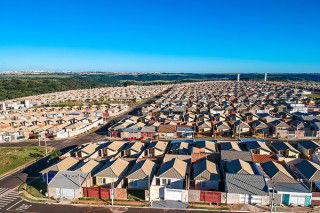Cement sales in Brazil edged up 1.1 per cent YoY to 5.864Mt in August 2021, according to SNIC, the country’s cement association. However, when considering the number of days worked, domestic sales slipped by one per cent in August 2021.
In the southeast, the largest market, sales increased by 1.7 per cent YoY to 2.711Mt from 2.665Mt in August 2020. However, in the northeast sales declined by 3.4 per cent YoY to 1.161Mt from 1.202Mt over the same period. In the south, sales advanced 7.2 per cent to 1.003Mt from 0.936Mt in August 2020 while in the central-west they were up 1.4 per cent YoY to 0.74Mt from 0.73Mt in the year-ago period. In the north, the country’s smallest market, a drop of 7.1 per cent was reported as sales declined to 0.249Mt in August 2021 from 0.268Mt in August 2020.
Exports advanced 14.3 per cent in August 2021 as they reached 32,000t from 28,000t in August 2020.
January-August 2021
In the first eight months of 2021 domestic cement sales advanced 11.1 per cent to 43,152Mt from 38.835Mt in the 8M20. When taking the number of days worked into account, domestic sales slipped by 0.3 per cent YoY in the January-August 2021 period.
The increase was the highest in the southern region where sales increased 16.4 per cent YoY from 6.36Mt in the 8M20 to 7.402Mt in the 8M21. In the central-west, strong growth of 13.7 per cent was reported with sales expanding from 4.405Mt to 5.01Mt over the same period. Likewise, in the north sales increased 11.8 per cent from 1.653Mt to 1.848Mt. However, the two largest markets – the southeast and northeast – reported a 9.4 per cent advance in sales to 20.253Mt and 8.639Mt, respectively.
Exports surged 86.9 per cent YoY from 145,000t in the 8M20 to 271,000t in the 8M21.
Outlook
Despite the largely positive sales levels, Paulo Camillo Penna, SNIC president, said caution was required going forward. “The increase in sales of residential properties at a high level has contributed to the good performance of the cement sector, but requires caution for the future. Self-construction, which is already losing steam with the growing indebtedness of families, continues to play an important role in the commercialisation of the commodity. The main concern of the cement industry is the significant increase in production costs, combined with inflation that erodes consumer income. Coke, the industry's highest cost, which in 2020 increased by 125 per cent, has already registered an increase of 72 per cent in 2021. Other inputs such as electricity, freight, sacks, plaster and refractories also registered a strong increase in prices,” he said.

Brazil’s cement market contracts in August
Cement sales in Brazil slipped 2.5 per cent to 6Mt in August 2025 from 6.154Mt in August 2024, a...